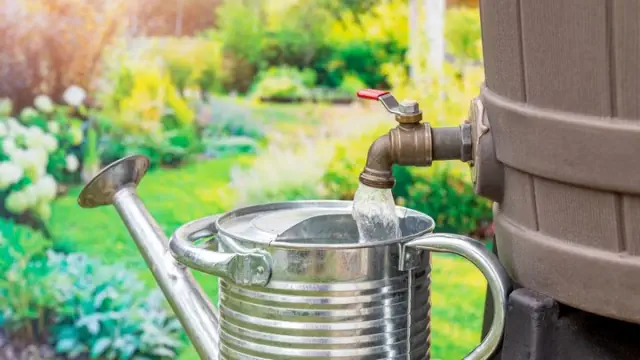In the past, collecting rainwater in Colorado was against the law. Although the regulations have been updated, violating them can still lead to hefty fines.

View pictures in App save up to 80% data.
Collecting rainwater is an incredibly effective method for irrigating your garden. By using a rain barrel, you can gather numerous gallons of free water, reducing the pressure on community resources and lowering your water expenses.
However, a simple search for rain barrels on Google may yield some concerning information, including claims that collecting rainwater is against the law.
The good news is that harvesting rainwater is perfectly legal in every state. The bad news is that there are lots of finicky regulations to bear in mind. This is all you need to know about the laws governing rain barrels.
In Colorado, collecting rainwater is subject to specific regulations. While it is not illegal, there are restrictions on how much rainwater you can collect and how it can be used. Homeowners are allowed to collect rainwater from their roofs using certain types of containers, but there are limits on the volume and intended use. It's important to check local laws and regulations to ensure compliance.
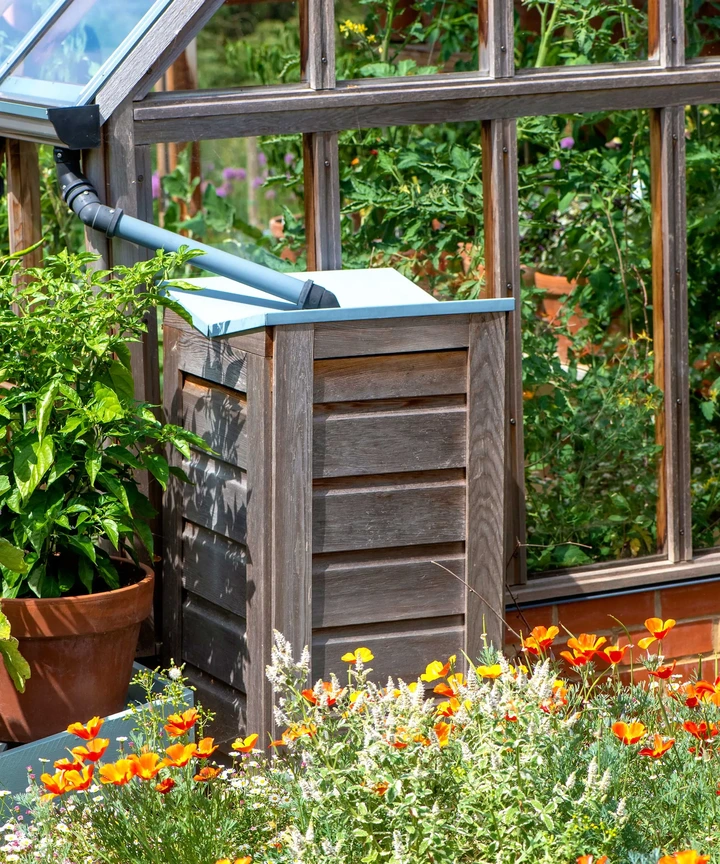
View pictures in App save up to 80% data.
It's an urban legend that harvesting rainwater is illegal in Colorado. It's almost true - for more than 100 years it was illegal to harvest rainwater in Colorado. However, the state legalized rain barrels in 2016.
However, numerous regulations still govern the collection of rainwater in the state. Currently, residents are allowed to use two rain barrels, with a combined capacity of up to 110 gallons. It's important to note that this water must be gathered from runoff originating from roofs and is strictly permitted for garden use. Additionally, the rain barrels are required to be sealable to inhibit mosquito breeding in the stored water.
Yard expert Jeremy Yamaguchi explains that 'In Colorado, there are rules regarding collecting rainwater, including having to use rain barrels and not being able to have more than four per single-family residence. The rain barrels must also specifically collect gutter runoff, and the water must be used outdoors (e.g. watering your garden, washing your car, etc.)
Nonetheless, Colorado is not the sole region facing stringent regulations on rainwater collection.

View pictures in App save up to 80% data.
Jeremy is a gardening expert who advises on a range of gardening matters. As the CEO of Lawn Love, Jeremy helps homeowners find quality, reliable lawn care.
What other locations have implemented water harvesting regulations?
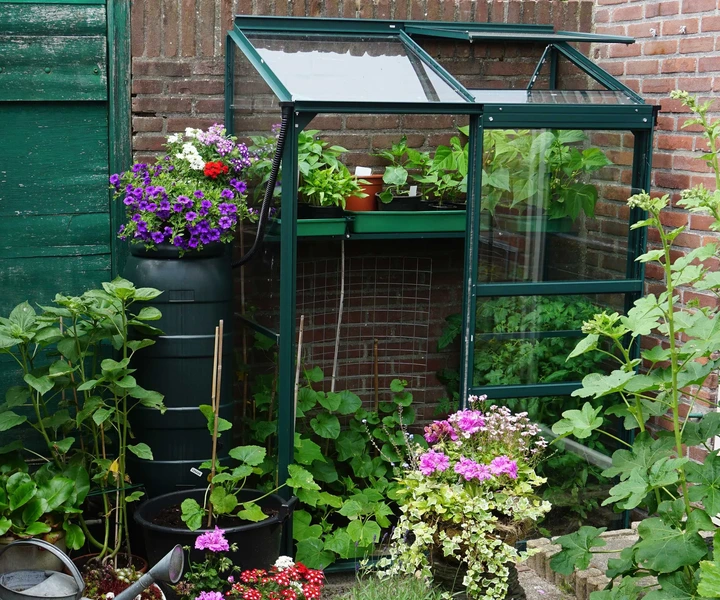
View pictures in App save up to 80% data.
Rainwater collection regulations differ significantly across various states and counties. In certain regions, there are financial incentives available for those who install rainwater collection systems, while in others, you may need to obtain permits or face limitations on the quantity of water you are allowed to gather.
The regulations surrounding rainwater harvesting can be quite complex. Take California, for example: while there are no formal restrictions on collecting rainwater from rooftops, using that water solely for landscaping or decorative features requires the involvement of a licensed contractor. Conversely, states like Kansas and Alaska have minimal restrictions on rainwater collection, yet they are governed by intricate water rights laws that can complicate the process.
In Arizona, the practice of rainwater harvesting is promoted, but it is required that any water collected on a property be utilized solely on that same land. Conversely, in Texas, rainwater harvesting is also encouraged, featuring tax exemptions for certain areas of a property equipped with rain barrels, along with tax-free weekends aimed at boosting rain barrel sales.
Although there is no nationwide prohibition on rainwater harvesting, numerous restrictions exist with significant differences across states. Therefore, it is advisable to review the regulations specific to each state.
In addition to legal regulations, certain homeowners' associations impose their own restrictions on rainwater collection systems. Typically, these guidelines require that rain barrels remain out of sight from the street or be affixed to structures like sheds or greenhouses. However, there are a few associations that completely prohibit the use of rain barrels.
What are the reasons behind the restrictions on rainwater harvesting?
One of the primary reasons that states impose restrictions on water harvesting is to protect soil health. Adequate water is essential for maintaining fertile soil, and if water is stored in a way that prevents it from nourishing the soil, it could negatively impact the surrounding ecosystem.
Jeremy clarifies that 'Generally, the main rationale behind water harvesting limitations is to avoid ecological disturbances caused by rainwater being unable to penetrate the soil.'
There are legal considerations involved, especially in mountainous regions of the country. The concern is that if your property is situated on an elevated area, the rainwater you collect may not naturally drain down to your neighbor's land as intended. This could lead to a situation where their vegetation suffers from a lack of water, potentially resulting in their plants dying, which could be seen as a legal infringement on your neighbor's property rights.
One of the reasons you can gather rainwater from your roof is that the precipitation that lands there would not have reached the ground in any case. Therefore, by channeling it into a barrel for reuse, you are not causing any harm to the environment or anyone else.
Another consideration is the issue of water rights. Certain properties come with ponds and streams, granting ownership of the water they contain. In certain states, this can extend to the rights over precipitation that falls from these water sources. It may seem astonishing, but the theoretical dilemma arises when collecting rainwater is viewed as appropriating water from another person, despite the fact that it's nearly impossible to demonstrate that the rainwater originated from their pond.
In the Western United States, the situation is further complicated by the principle of prior appropriation, a remnant of old settler laws. This doctrine posits that individuals have the entitlement to water from a stream or pond until it is first utilized; once someone does use it, that initial user gains exclusive rights to the water, including its usage, diversion, and storage. The challenges surrounding water rights discussed earlier are also relevant to the concept of prior appropriation.
As a result, numerous local governments have implemented strict regulations on water harvesting to prevent any possible legal issues from arising in the future.
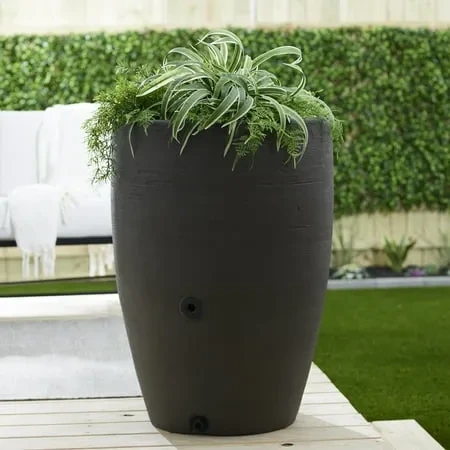
View pictures in App save up to 80% data.
Algreen Athena Rainwater Collection Barrel, Brownstone Finish
One popular method for concealing a rain barrel is by opting for an attractive design such as this one. This particular barrel features a shallow top basin that can hold small plants, giving it the appearance of a decorative planter rather than a typical rain barrel. Plus, it is crafted from recycled plastic, making it an eco-friendly choice.
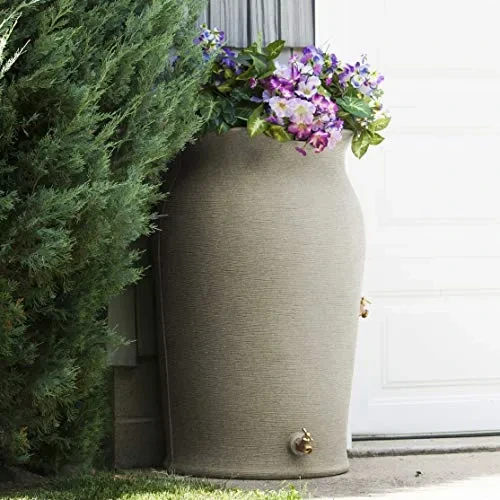
View pictures in App save up to 80% data.
Impressions Amphora 50-Gallon Rainwater Collector - Sandstone Finish
This elegant sandstone style is perfect for desert residences in the Southwest. The barrel features two faucets, enabling you to tackle multiple watering tasks simultaneously. Just be sure to check if your state permits rainwater collection.
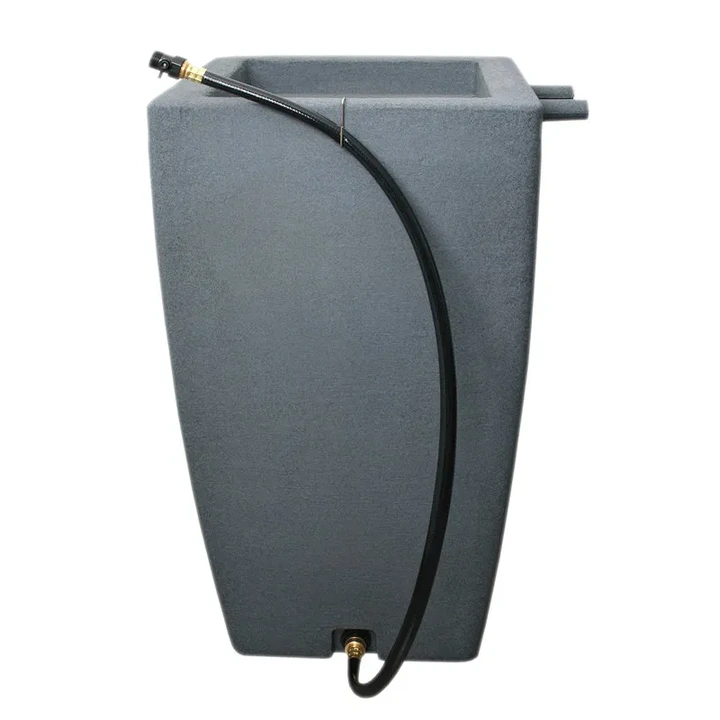
View pictures in App save up to 80% data.
Latitude Run Camarillo Rainwater Collection Barrel
This rain barrel stands out from others because it comes with a built-in hose, making it significantly more convenient for watering a kitchen garden on your patio.
Is it permissible to consume rainwater?
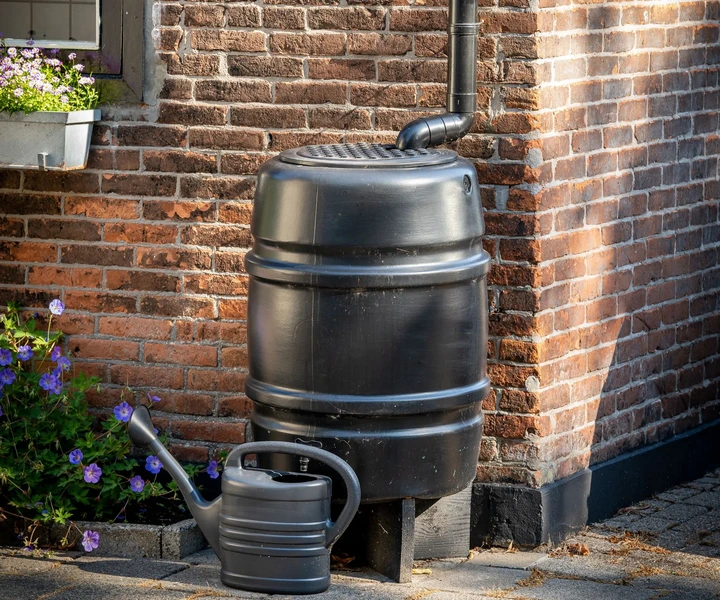
View pictures in App save up to 80% data.
Generally, it is legal to drink rainwater, but there are regulations regarding its collection and storage in many states. Typically, rainwater harvesting is permitted solely for outdoor domestic purposes, excluding indoor applications like drinking and bathing. Consequently, using rainwater for drinking is prohibited and could potentially lead to fines, although such enforcement is rare.
The primary reason for this is that rainwater harvesting is not a completely clean method. While it is beneficial for plants, the water collected from roofs can gather dirt, dust, and bacteria from bird droppings or other pollutants. Additionally, there may be small traces of bitumen or other substances used in roofing materials. Although most rain barrels are equipped with filters to prevent debris from contaminating the water, some minute particles will inevitably seep into the supply, making it unsuitable for drinking.
Even in the absence of these pollutants, rain barrels can still harbor algae and mosquito larvae, both of which are unsafe for consumption. Therefore, although it's improbable that you would face a penalty for drinking from a rain barrel, doing so could expose you to the risk of a waterborne illness.
The penalties for harvesting rainwater can vary significantly depending on the region or country you are in. In some places, it may be completely legal and encouraged, while in others, there may be strict regulations that could lead to fines or other legal consequences for unauthorized collection. It's essential to check local laws and regulations regarding rainwater harvesting to understand any potential penalties that may apply.
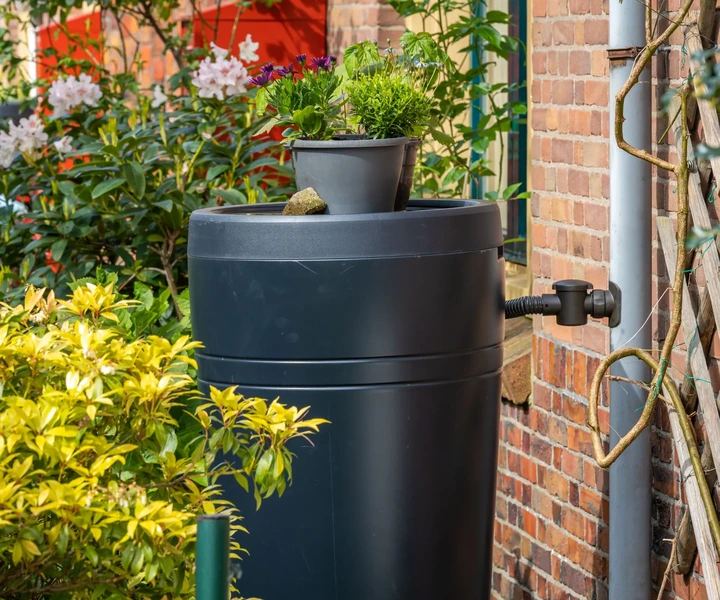
View pictures in App save up to 80% data.
Penalties for improper rainwater harvesting differ from one municipality to another. Generally, it is improbable that the consequences would exceed a fine of a few hundred dollars. This situation is similar within homeowners associations as well.
Staying on the right side of the law isn't the only rain barrel problem. Rain barrels are also a magnet for mosquitos, and you also need to know how to prevent algae from forming in your rain barrel. Thankfully, it's pretty easy. A tight rain barrel lid - and a drop of vegetable oil - can stop both of these problems before they start.
